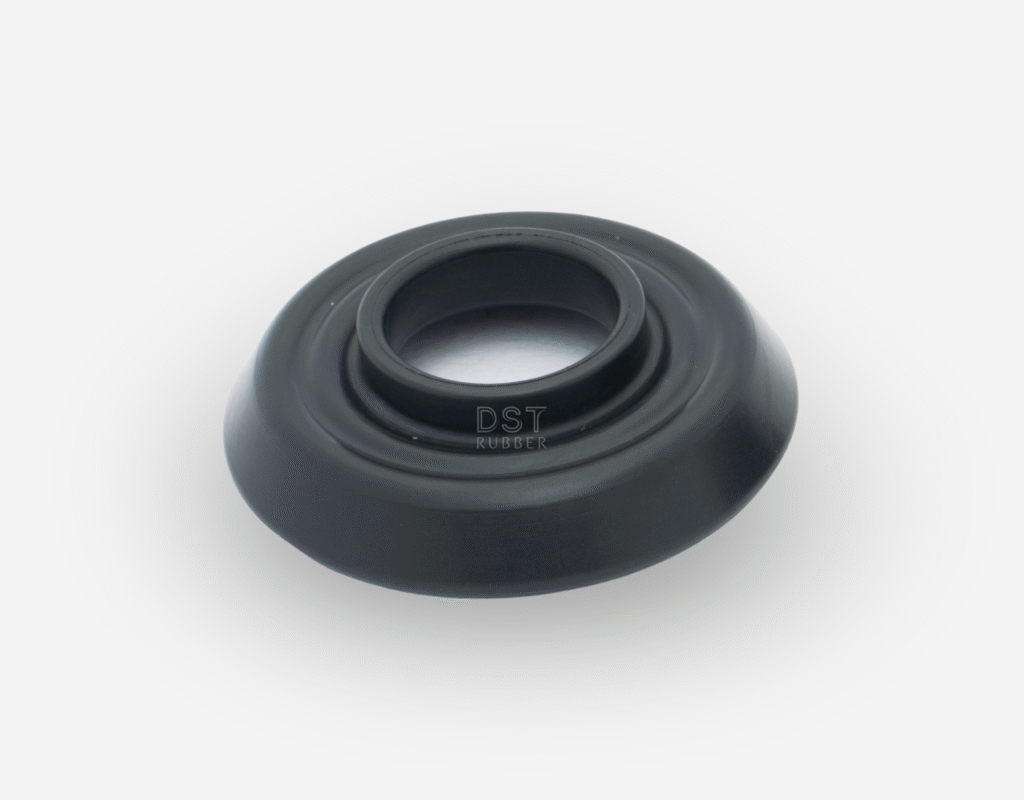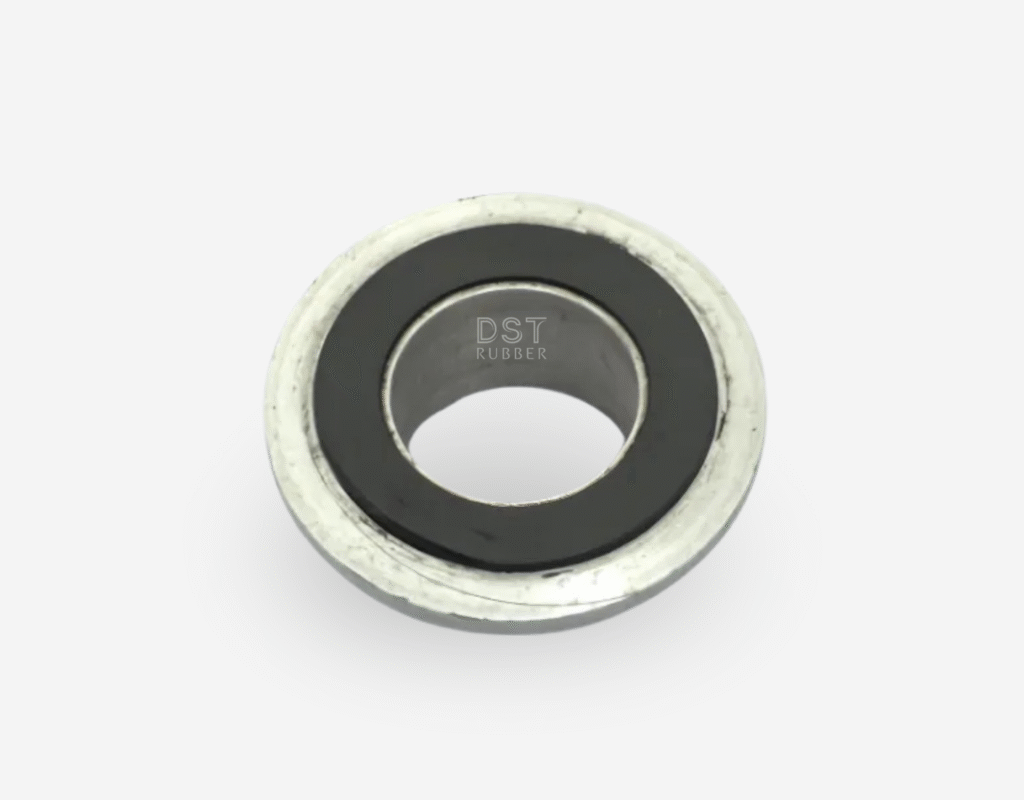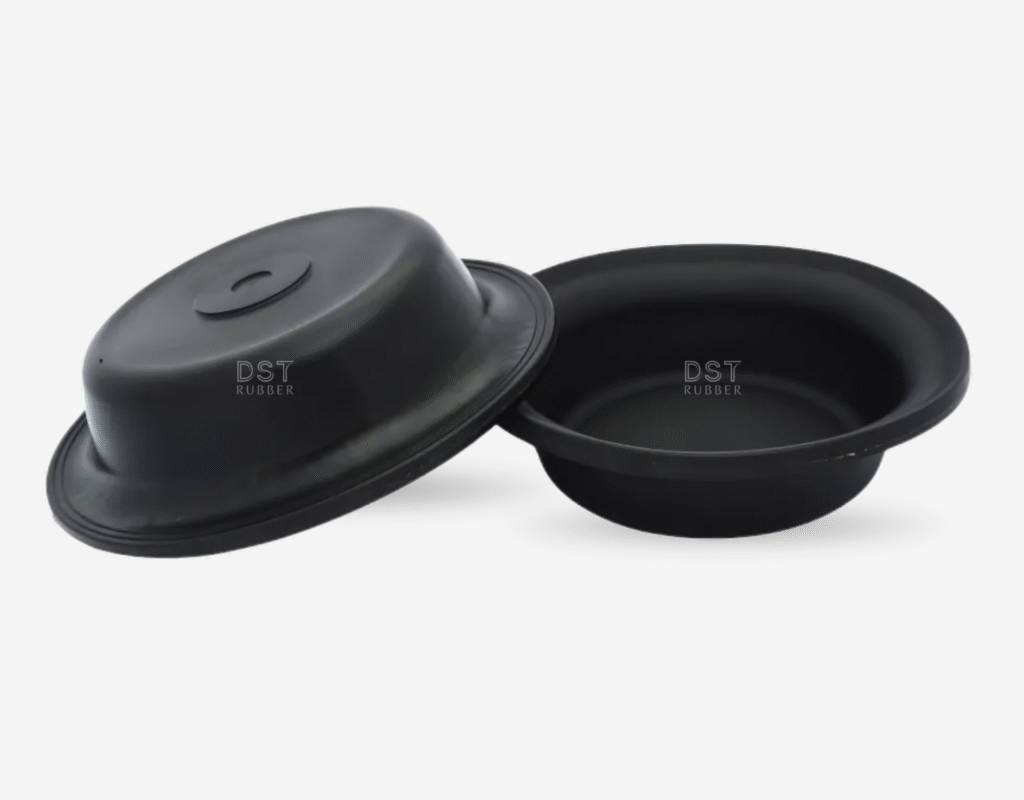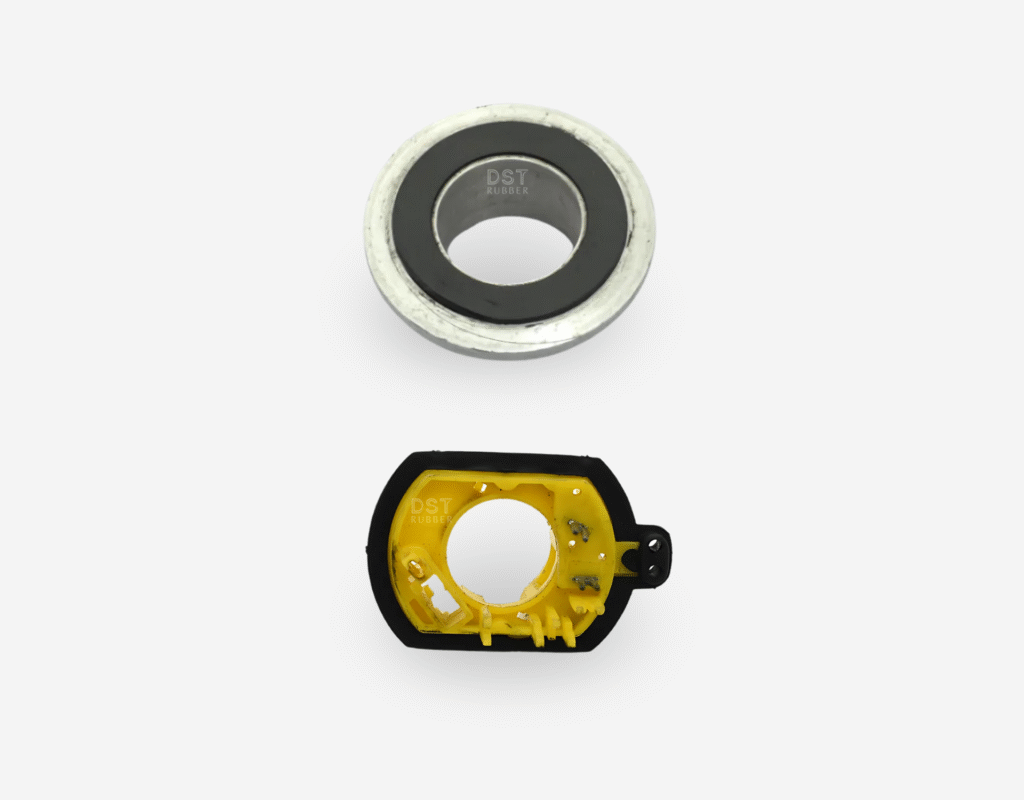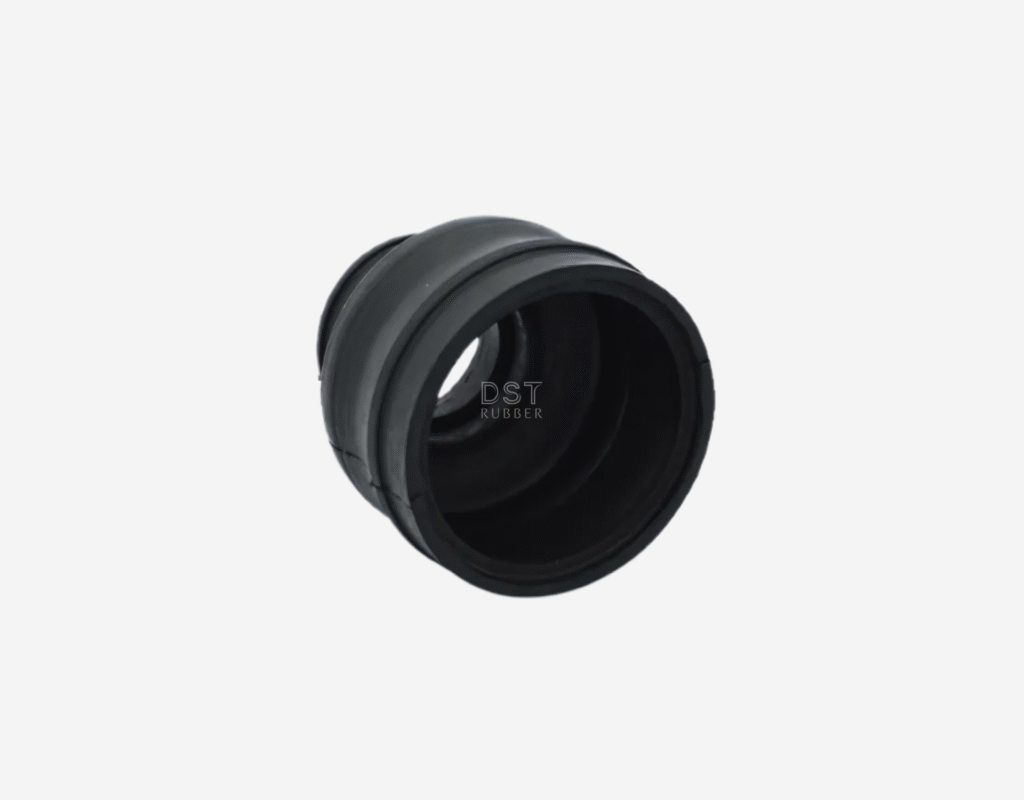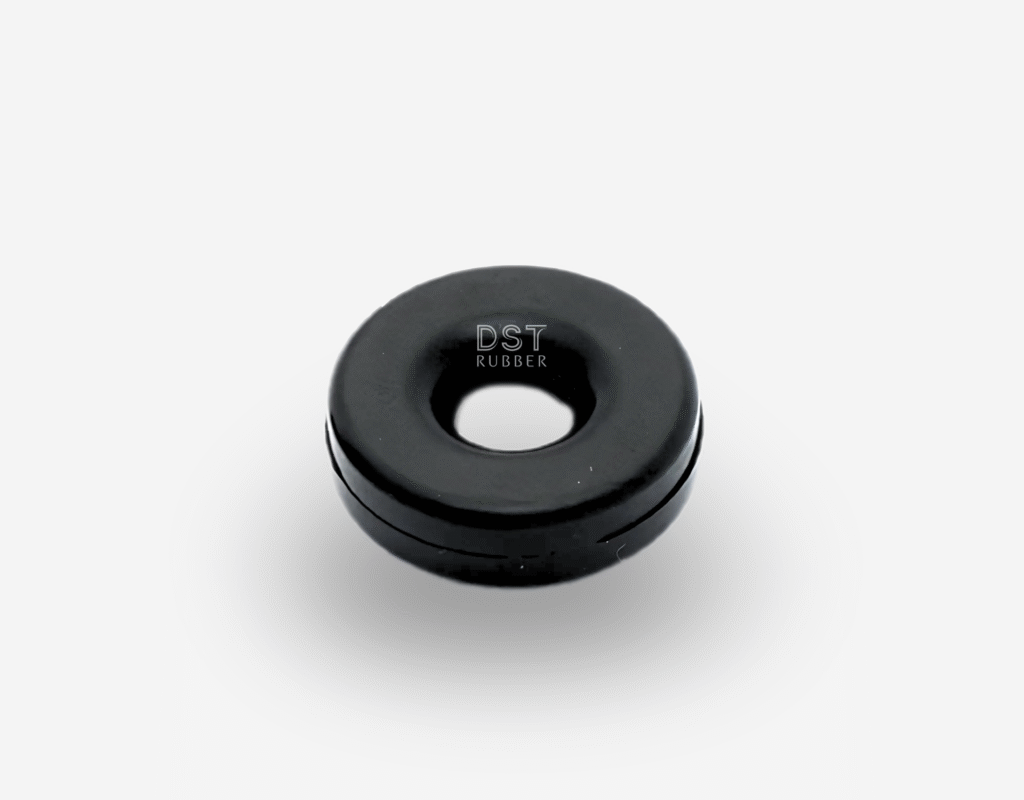Material Characterization of Rubber Compounds
At DST Rubber, we engineer a wide range of elastomer compounds, each tailored to perform under specific environmental and operational demands. Below is an overview of our commonly used materials, including their key properties and typical applications.
EPDM (Ethylene Propylene Diene Monomer)
Key Properties:
- Excellent resistance to weathering, ozone, UV, and steam
- Stable in a wide range of temperatures (-50°C to +150°C)
- Poor resistance to oils and fuels
Applications:
Used extensively in automotive weather seals, coolant hoses, roofing membranes, and electrical insulation.
FKM (Fluoroelastomer)
Key Properties:
- Exceptional resistance to heat, oils, fuels, and chemicals
- Operational range from -20°C to +230°C
- Superior compression set and aging resistance
Applications:
Ideal for aerospace seals, automotive fuel systems, and chemical processing components.
NR (Natural Rubber)
Key Properties:
- Excellent tensile strength, tear resistance, and dynamic fatigue properties
- Good resilience and abrasion resistance
- Poor resistance to petroleum-based oils
Applications:
Commonly used in shock mounts, vibration isolators, tires, and gaskets for non-oil applications.
NBR (Nitrile Butadiene Rubber)
Key Properties:
- High resistance to oil, fuel, and grease
- Moderate abrasion and heat resistance
- Temperature range: -30°C to +120°C
Applications:
Ideal for fuel hoses, O-rings, oil seals, and industrial rubber goods requiring fluid resistance.
NBR (Nitrile Butadiene Rubber)
Key Properties:
- Good abrasion resistance and flexibility
- Cost-effective alternative to NR
- Limited oil and weather resistance
Applications:
Used in conveyor belts, gaskets, seals, and shoe soles, especially in dry or indoor environments.
VMQ (Silicone Rubber)
Key Properties:
- Outstanding heat resistance, electrical insulation, and flexibility at low temperatures
- Poor mechanical strength and tear resistance
- Operational range: -60°C to +200°C
Applications:
Suited for medical devices, food-grade seals, lighting gaskets, and high-temperature applications.
FVMQ (Fluorosilicone Rubber)
Key Properties:
- Combines the heat resistance of silicone with fuel and solvent resistance
- Stable at -70°C to +230°C
- Excellent in aggressive aerospace and automotive environments
Applications:
Used in aerospace fuel systems, turbocharger hoses, and high-performance automotive seals.
| Properties | NR | SBR | NBR | EPDM | CR | VMQ | FKM | FVMQ | FFKM |
|---|---|---|---|---|---|---|---|---|---|
| Hardness Shore A | 30–95 | 40–95 | 40–95 | 30–85 | 30–90 | 40–80 | 50–95 | 40–80 | 65–90 |
| Temp Resistance °C | 75 °C | 85 °C | 100 °C | 130 °C | 95 °C | 205 °C | 205 °C | E | E |
| Max Intermittent °C | 105 °C | 115 °C | 130 °C | 150 °C | 125 °C | 300 °C | 300 °C | 177 | 320 |
| Low Temp Resistance °C | -60 °C | -55 °C | -20 °C | -50 °C | -35 °C | -60 °C | -20 °C | -75 to +400 | -13 to +600 |
| Oxidation Resistance | ⭐ | ⭐ | ⭐⭐ | ⭐⭐⭐⭐ | ⭐⭐⭐ | ⭐⭐⭐⭐ | ⭐⭐⭐⭐⭐ | Excellent | Excellent |
| Ozone and Weathering | 👎 | ⭐ | ⭐ | ⭐⭐⭐⭐⭐ | ⭐⭐⭐ | ⭐⭐⭐⭐⭐ | ⭐⭐⭐⭐⭐ | E | E |
| Oil Resistance | 👎 | 👎 | ⭐⭐⭐⭐ | ⭐ | ⭐⭐ | ⭐⭐⭐⭐ | ⭐⭐⭐⭐ | E | E |
| Alcohol | ⭐⭐ | ⭐⭐ | ⭐⭐ | ⭐⭐ | ⭐⭐ | ⭐⭐ | ⭐⭐ | G | E |
| Acetone | ⭐ | ⭐ | 👎 | ⭐⭐ | ⭐ | ⭐ | 👎 | 👎 | ⭐⭐⭐⭐⭐ |
| Benzene | 👎 | 👎 | 👎 | 👎 | 👎 | 👎 | ⭐⭐ | ⭐⭐⭐⭐ | ⭐⭐⭐⭐⭐ |
| Acids | ⭐⭐ | ⭐⭐ | ⭐⭐ | ⭐⭐ | ⭐⭐ | ⭐ | ⭐⭐⭐⭐ | G | E |
| Bases | ⭐⭐ | ⭐⭐ | ⭐ | ⭐⭐ | ⭐ | ⭐ | ⭐⭐ | ⭐⭐⭐ | ⭐⭐⭐ |
| Physical Strength | ⭐⭐⭐⭐ | ⭐⭐ | ⭐⭐ | ⭐⭐ | ⭐⭐ | 👎 | ⭐⭐ | G–E | F |
| Compression Set | ⭐⭐ | ⭐⭐ | ⭐⭐ | ⭐⭐ | ⭐⭐ | ⭐⭐ | ⭐⭐ | ⭐⭐⭐ | ⭐⭐⭐ |
| Tear and Abrasion | ⭐⭐⭐⭐ | ⭐⭐ | ⭐⭐ | ⭐⭐ | ⭐⭐ | 👎 | ⭐⭐ | P–F | F |
| Resilience | ⭐⭐⭐⭐ | ⭐⭐ | ⭐⭐ | ⭐⭐⭐ | ⭐⭐⭐ | ⭐ | 👎 | G | G |
| Gas Permeability | 👎 | ⭒ | ⭐⭐ | ⭒ | ⭐⭐⭐ | ⭐⭐ | ⭒ | P | G–E |
| Flame Resistance | ⭐ | ⭐ | ⭐ | ⭐ | Self-Extinguishing | ⭐⭐ | Self-Extinguishing | Excellent | Excellent |
| Water Resistance | ⭐⭐⭐⭐ | ⭐ | ⭐⭐ | ⭐⭐⭐⭐ | ⭐⭐ | ⭐⭐ | ⭐⭐ | E | G |
Proud Partnerships with Industry Leaders
DS Techno Rubber
35
Experience
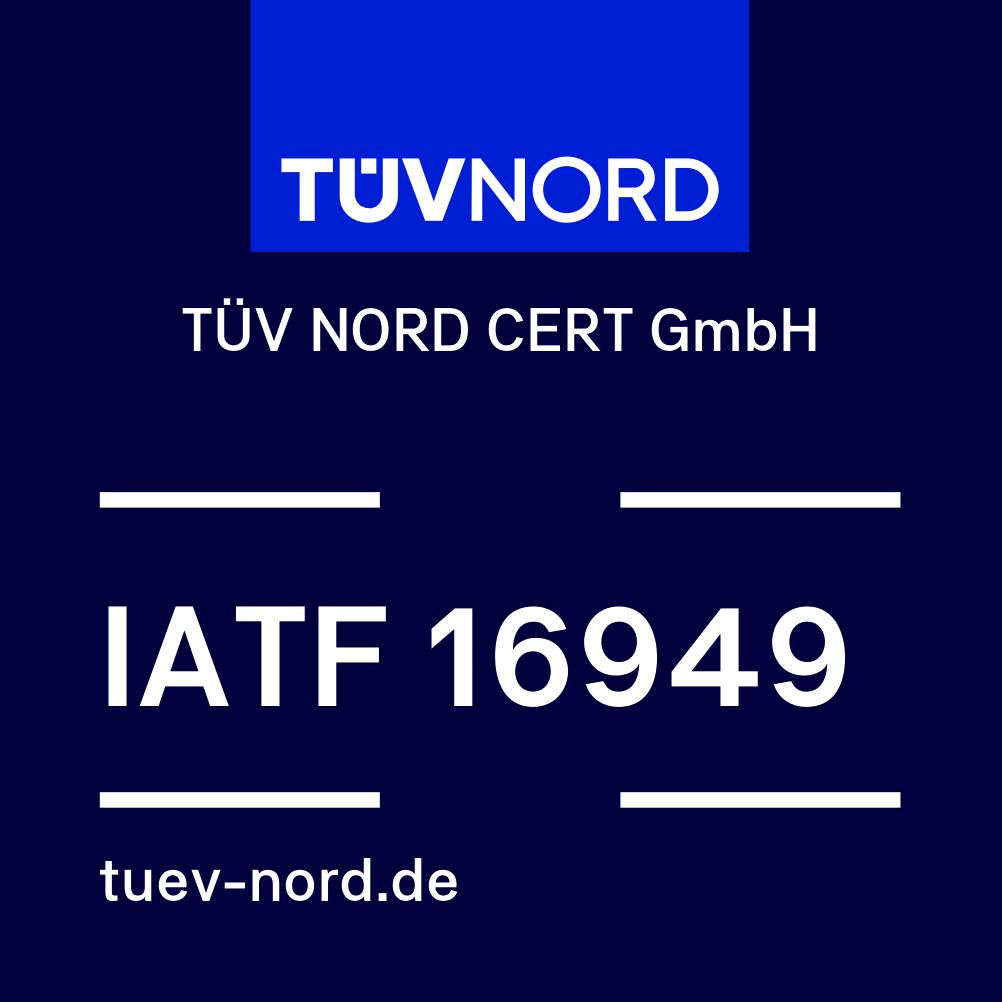
iatf 16949 certified
DST is a trusted manufacturer with over 35 years of expertise in producing technically complex rubber components. IATF 16949 certified and recognized for excellence, we specialize in innovative solutions, ensuring top-quality products for automotive and non-automotive sectors.
With a strong focus on research and development, quality control, and customer satisfaction, we proudly serve clients across India, the USA, and Germany.


